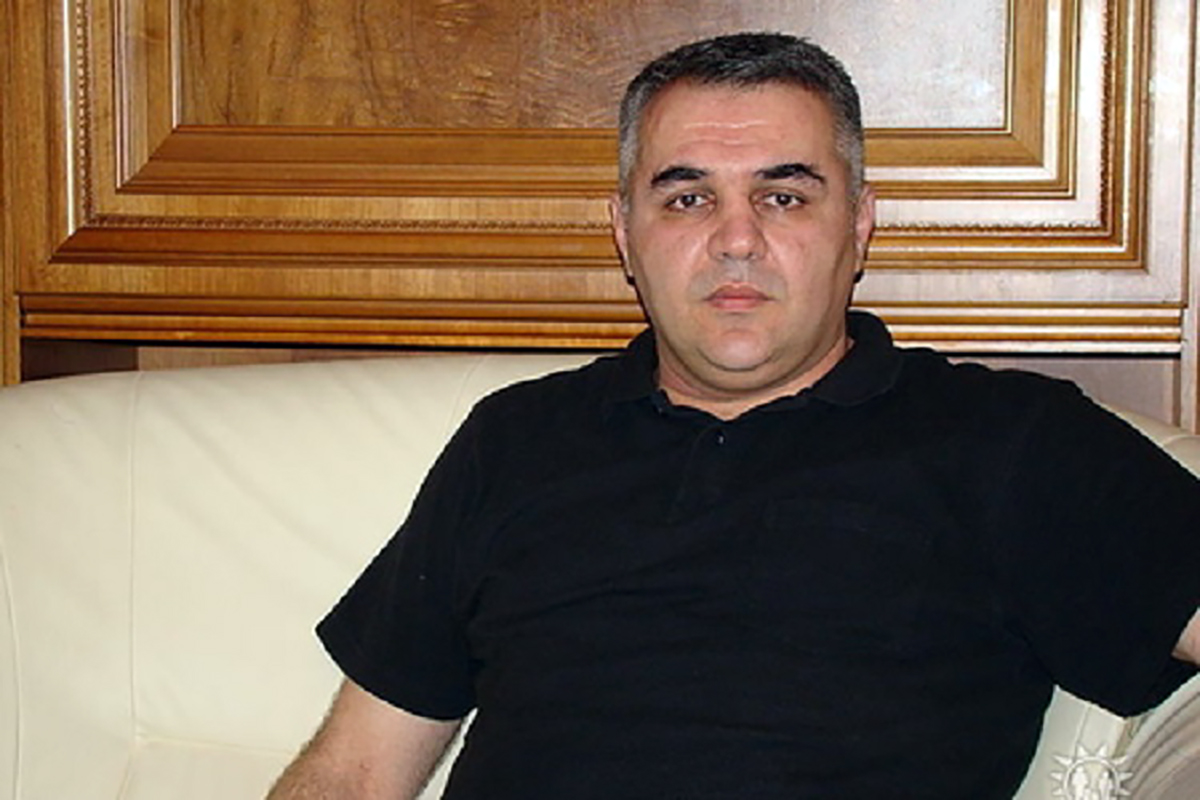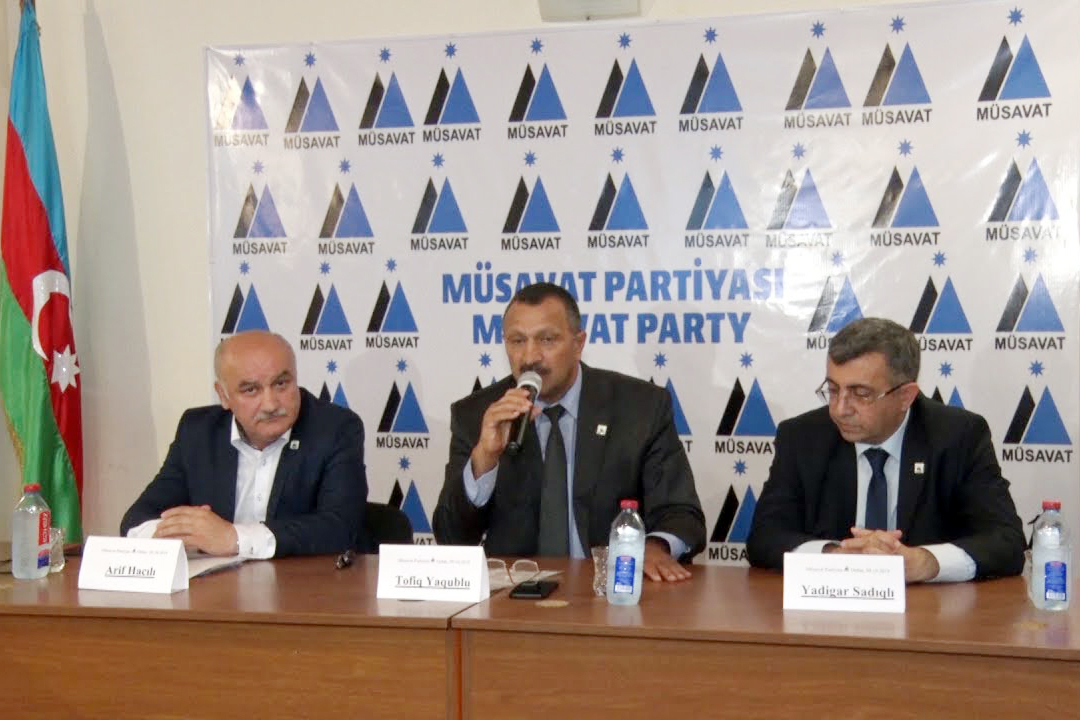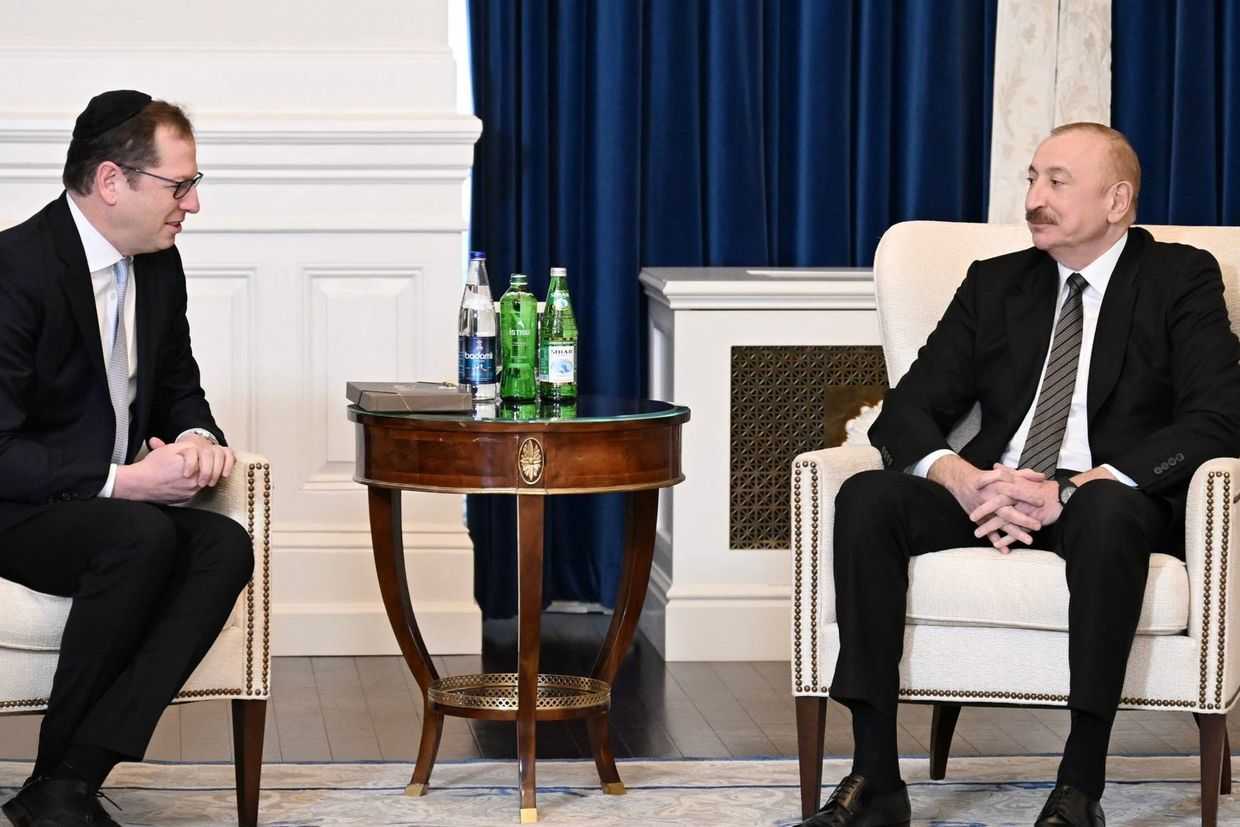![Bundespolizei , Copyright: Thomas Koehler/ photothek.net [Tel. +492195932470, www. photothek .net. Jegliche Verwendung nur gegen Honorar und Beleg. Urheber-/Agenturvermerk wird nach Paragraph13 UrhG ausdruecklich verlangt ! Es gelten ausschliesslich unsere AGB.]](/_next/image/?url=https%3A%2F%2Foc-media.org%2Fcontent%2Fimages%2Fwordpress%2F2019%2F12%2Fgerman-federal-police.-official-picture.-1.jpg&w=3840&q=90)

Azerbaijan’s opposition Musavat Party has found itself in hot water over an alleged migrant trafficking scheme to Germany. After several arrests and deportations, German court documents appear to allege that the party charged would-be migrants thousands of euros in exchange for evidence they were politically persecuted.
On 13 November German police raided thirteen locations throughout the country in connection with an alleged human smuggling ring from Azerbaijan to Germany.
Habib Muntazir, an anchor at Meydan TV, warned that a ‘hunt for political immigrants’ was underway.
The next day, 61 Azerbaijani citizens — 22 men, 18 women, and 21 children — were deported from Germany to Azerbaijan via a chartered flight.
In his post on Facebook, Muntazir named seven Azerbaijani nationals who had been detained by German police. This list included prominent members of the Musavat party in Europe, including Ilham Hasan, the Chair of the European Coordination Centre of the Musavat Party (ECMC).
Based in Frankfurt, the ECMC is the European branch of the Musavat Party, one of Azerbaijan’s largest opposition parties. It has coordinated the activities of Musavat members in Europe since 2016.
In addition to Hasan, those Muntazir said were arrested included Alovsat Aliyev, a well-known immigration lawyer; Mehdi Khalilbayli, former Deputy Chair of the ECMC, a relative of his, Abdin Javadov, who is also a member of ECMC, and Khalilbayli’s driver, Rashad Mammadov.
A copy of German Prosecutor’s Office documents published by Azerbaijan’s Trend news agency appeared to confirm these arrests.
The document lists the surnames of several people suspected of being involved in migrant smuggling: Khalilbayli, Hasan, Javadov, Mammadov, and Ismayilov. With the exception of Ismayilov, the names all matched up to the Musavat members who Muntazir named.
On 21 November Azerbaijan’s APA news agency reported that the ECMC had confirmed Mehdi Khalilbayli’s arrest but that ‘for now’ he had only been charged with tax evasion.
The alleged scheme
The German Prosecutor’s Office documents outline a complex scheme in which would-be Azerbaijani migrants to Europe bought Musavat party membership in order to secure political asylum.
In exchange for €3,000–€10,000, individuals were allegedly provided with fake documents stating that they had been politically persecuted.
Two Azerbaijani nationals were arrested, one of whom they allege was the head of the operation. The names of the two men were not released.
‘The accused, Mammadov, worked as the driver of the accused, Khalilbayli, until the autumn of 2018, and, from 2015, he transferred various amounts of money to the accused, Khalilbayli, in total — €300,000 from the accused Javadov, as well as packages with seven sets of fake documents from the accused Hasan’, the document reads.

The document said the allegations were based on testimony provided by Mammadov, as well as others identified during the course of the investigation, which is still ongoing.
‘A ten-year enterprise’
Yafaz Hasanov, a journalist and member of the Musavat party who received political asylum in Germany in 2016, told OC Media the trafficking scheme had been a ‘10 year enterprise’.
‘It is mostly members of the Musavat involved in it’, he said.
The illegal enterprise grew, he said, after Azerbaijan’s currency collapsed in 2015.
‘Azerbaijanis started wanting to leave the country and move to Europe, they chose Germany in particular.’
‘Many businesspeople involved in migrant trafficking started to take an interest in those people.’
Hasanov said he had been conducting a personal investigation into the Musavat party’s involvement in migrant trafficking for some time. He said that the scheme involved members of the Musavat party both in Azerbaijan, who find people wishing to emigrate, and in Europe.
According to him, members of Musavat party, including the party’s upper management, give prospective migrants party membership in exchange for cash. Then, they have them participate in a protest or other political activity, as a result of which they are detained by police.
After receiving documents from Azerbaijani police and courts confirming the arrests they organise their emigration to Germany where they can apply for political asylum.
Hasanov said that since February, Germany had refused all requests from Azerbaijani immigrants with Musavat documents and deported all those who arrived with them.
‘I can say that deportation of people with Musavat documents will accelerate’, he concluded.
On 11 December, Gulaga Aslanli, the head of the apparatus of the Musavat party, filed a criminal complaint against Hasanov accusing him of slandering his party.
There have been reports that the scandal may have already begun to affect Azerbaijanis attempting to travel to Europe.
Gubad Ibadoglu, the head of the Movement for Democracy and Prosperity, told Meydan TV that from now on, Azerbaijanis would face difficulties obtaining European visas.
On 19 November, NiDa movement activist and former political prisoner Ilkin Rustamzadeh told Meydan TV that he had had difficulties obtaining a Schengen visa.
Journalist Aynur Elgunesh and social activist Nigar Hazi said they had been refused visas altogether.
Reactions to the allegations
Ilham Hasan, the chair of ECMC, after two days of silence on social media following his purported arrest, uploaded a video to Facebook claiming he was not detained.
He insisted that his organisation had no connection to the arrests of Azerbaijani nationals in Germany. The video has since been taken down.
Alovsat Aliyev’s son, Turkel Rustamkhanli, confirmed to OC Media that his father had been detained.
Sabir Rustamkhanli, Aliyev’s brother and the leader of Azerbaijani Civic Solidarity Party, told APA that the German government suspected Aliyev of smuggling Azerbaijani citizens to Germany.
‘However, Alovsat Aliyev dealt with nothing illegal. He just helps Azerbaijani citizens who are moving to Germany’, he said. ‘And this is something which benefits our citizens.’
Aliyev’s lawyer, Erich Althammer, told BBC Azerbaijan that his client had told him that ‘he didn’t violate any German law’. According to him, Aliyev is now in a temporary detention centre.
According to Althammer, Aliyev was not ‘totally familiar’ with the charges against him. He said it would not be possible to say exactly what Aliyev is accused of until the German Prosecution Office sends the bill of indictment.
Meydan TV reported in 2017 that Aliyev was mentioned in a criminal case against a group who helped the wife and children of Emin Shekinksi, former chief of the Criminal Investigation Department of the Ministry of Internal Affairs, leave Azerbaijan with illegal documents.
‘People know that I worked as head of the Immigration Centre for years and I have huge experience. I just give them advice, and always strongly recommend them not to use fake documents’, Aliyev told Meydan TV in an interview in 2016.
Party split
Alya Yagublu, a member of the Executive Board of the Musavat Party, wrote on Facebook on 14 November that after the influx of immigrants from Azerbaijan increased, the German government began sending inquiries to various organisations in Azerbaijan, as well as the Azerbaijani authorities, about each individual migrant.
She said that the General Prosecutor’s Office of Azerbaijan opened a case regarding this three years ago and questioned the leaders of the party. The case has since been frozen, though, Yagublu said, it may reopen following these latest allegations.
‘[Either they] will punish those involved in the case and will destroy the party [or they] will not punish [them] and using this opportunity they will attract the party to their [political manipulations]’, she wrote.
Yagublu said that the only way the party could be saved was if the chair, Arif Hajili, resigned.

In an interview to journalist Sevinj Osmangizi on 15 November, Yagublu said that several members of the Executive Board of the Musavat Party were initially against the activity of the ECMC because they did not know the people who coordinated it and because there was no financial oversight of the group from the Musavat’s central headquarters in Azerbaijan.
Ramis Yunus, a former Azerbaijani parliamentarian from the Musavat Party who now lives in the United States, also called for Hajili’s resignation on Facebook.
Yadigar Sadigli, another member of the Executive Board of the Musavat Party, told Azerbaijani news website Telegraf.com that he along with other Musavat members ‘remaining in the minority’ were protesting against the activity of the ECMC.
He also said that Hajili’s resignation was the only way to save the party’s reputation.
He said that former party chair Isa Gambar also bore responsibility for the current party crisis.
‘Isa Gambar has always fiercely defended Arif Hajili’, he said. ‘The responsibility of Isa Gambar for the events surrounding the Musavat Party today is no less than that of Arif Hajili.’
Tofig Yagublu, a prominent Musavat member who was recently released after serving 30 days in administrative detention for participating in a rally on 19 October, told Radio Azadlig on 20 November that he along with a small group of party members, had repeatedly asked the party’s leadership to stop giving Musavat references to people ‘who were obviously not members’ of the party in order to facilitate their emigration to Europe.
‘I know of a few concrete cases in which such fake references were given to non-Musavat members […] We asked [the party leadership] to stop doing that, but it didn’t result in anything.’
‘What would Musavat members do in Europe? Fight Angela Merkel?’
‘It’s absurd […] of course, it was directed to receive political refuge’, he said.
Yagublu noted that this issue was the reason behind the resignation of deputy party chairs Elman Fettah and Yadigar Sadigli in December and October 2017, respectively.
‘A political campaign against Musavat’
The Musavat party leadership has hit back against the allegations, labelling them a politically motivated campaign to discredit the party.
The embattled party chair Arif Hajili told Meydan TV on 14 November, that some people on the list of detainees first publicised by Habib Muntazir were not even members of the party.
‘Moreover, some of them are people who have campaigned against the party for a long time’, he added.
The following day, the party released a statement insisting the operation in Germany was not targeted specifically against the Musavat party nor against Azerbaijani immigrants.
‘The claim that any Musavat member was detained as part of the operation has not been confirmed’, the statement read.
On 16 November, in an interview with Kanal 13, Hajili said that the arrests were another campaign waged against the Musavat party by the Azerbaijani authorities. He added that similar campaigns have been used against other opposition parties including the Popular Front Party and the NiDA youth movement.
While refusing to step down, Hajili said he accepted the calls to do so, as ‘the existence of different opinions is normal in a democratic society’.
Hajili also added that among the 61 Azerbaijanis deported on 15 November, only one was a member of the Musavat party.
He urged people who received fake Musavat party membership documents to come forward and address the Azerbaijani Prosecutor’s Office and the press.
‘Another issue is that there are people who are using the name of the Musavat Party or the Popular Front Party [another opposition party] to issue fake documents’, he said, adding that it was ‘a different issue’.
He added that at the last party meeting, a decision was made that only those who had been party members for at least two years would be given references for migration purposes.








